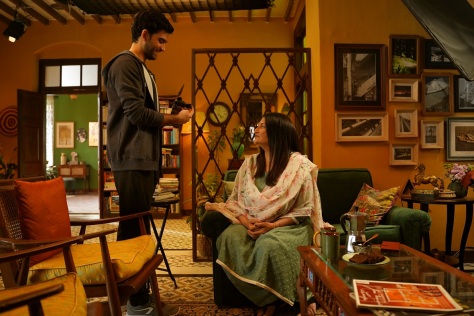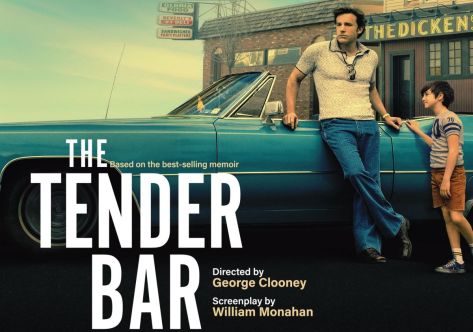STORY
Sunny is an artist and Firoz, is a printer. Both of them work in a printing press that is run by Sunny’s grandfather. When the printing business hit a crisis and runs out of solutions, Sunny decides to generate money by making counterfeit money.
INTRODUCTION
Released on Amazon Prime Video, Farzi is an Indian black-comedy action series starring Shahid Kapoor. During its eight-episode run, we come to know that the show is set in the same universe as Manoj Bajpayee-starrer ‘The Family Man‘. Directed by the filmmaking duo Raj & DK, Farzi was first planned to be a film years ago but then they decided to make a series.
REVIEW

Looking at its story and the continuity, Farzi is a kind of project that is flexible to be shaped into a film as well as a tv series. The plus point for deciding to stretch Farzi is that the audience got the whole exposure of printing currency and running a business out of it. Officer Michael’s life was focused as well as Megha’s.
But when you stretch the details, the screenplay of the tv series notions development in the central story. I feel this is the area where Farzi is weak because Farzi easily could have been a four-episode show. The writing’s commitment to action and comedy drops the quality in the second half of the season.
I like the plot, it is fresh for the audience with a Narcos-tic narration by Shahid Kapoor. Some minor points raised were sharp like the minister and other attendees not listening to the presentation, Megha and her mother’s typical calls, Michael speaking with his wife and family in Tamil and English, etc. I wanted Michael’s scenes with his family completely without Hindi but it is okay.
Presenting the show in a non-linear way was also a good idea. The dialogues were natural but on several counts, I felt the dialogues went cheesy.
Farzi has plenty of errors in writing. Officer Michael’s disrespectful conduct in conversation with the minister was quite surprising. Just because you have his private pictures, doesn’t mean that you can try to annoy a minister that often and he will tolerate that much.
I have never understood the Bollywood logic. Why the friend of the leading character is always silly and ultra-loyalist to him? Why cannot the directors level the personalities of two or more friends? When the press is demanded to open, uncle Yasir goes cold as the dead body. How come the police and Megha do not suspect Yasir of lying or hiding something from them?
The action sequence in the season finale was quite stretched and boring. The cops repeatedly running towards the front and back was so stupid.
The worst character of the show is Mansoor Dalal played by such a quality actor like Kay Kay Menon. A very stereotypical villain who thinks he is funny but merciless. There was no originality in his antagonism. It was like just another clone of a psycho pretending to be a psycho.
CLOSING REMARKS

What propels me to watch ‘Farzi’ is the continuity of the story that is set toward the next season and Shahid Kapoor’s performance. With age, his mental strength in acting has gone better, and improved his skill in depicting anger and frustration.
I am not sure if Vijay Sethupati has worked on a Hindi project before but it was absolute fun to listen to him uttering thick curse words in his Tamilian Hindi. I am happy to see Amol Palekar but it looks visible that his acting has faded. What took him so long to return to acting?
Those who are willing to try a black-comedy action series with an interesting plot can try this.
SUBSCRIBE TO MY YOUTUBE CHANNEL AND WATCH MY TV REVIEW HERE
FOLLOW ‘THE DARK KNAIK’ ON OTHER SOCIAL PLATFORMS
TIKTOK https://www.tiktok.com/@thedarkknaik
FACEBOOK https://www.facebook.com/thedarkknaik
INSTAGRAM https://www.instagram.com/thedarkknaik/

















